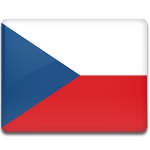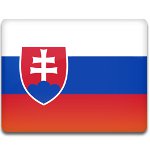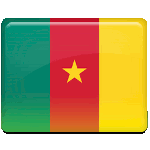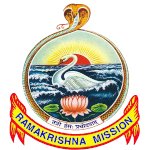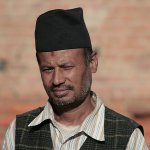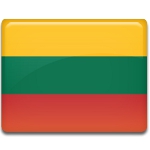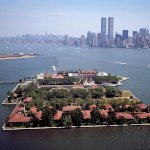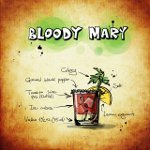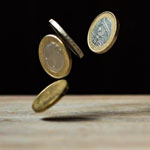Holidays Calendar for January 1, 2020
January 1 is not only New Year's Day, but also Restoration Day of the Independent Czech State. This holiday marks the day, when Czechoslovakia split into Slovakia and the Czech Republic.
The independence issue had always been an acute problem for Slovakia until 1993, when the country finally gained its sovereignty. The Day of the Establishment of the Slovak Republic is an official holiday that marks the day of splitting Czechoslovakia into the Slovak Republic and the Czech Republic.
While the rest of the world is busy with the New Year's Day, the Cubans celebrate Triumph of the Revolution, also knows as Liberation Day, a holiday that marks the anniversary of the victory of the revolution led by Fidel Castro.
January 1 is Independence Day in Haiti. This date was chosen to commemorate the declaration of independence from France in 1804 and returning to Haiti its historical name.
January 1 is a very important holiday for the Republic of Cameroon because this day marks gaining independence from France. Independence Day in Cameroon is celebrated on January 1 since 1960.
Independence Day is the main national holiday in the Republic of the Sudan. It is celebrated on 1 January since 1956, when Sudan gained independence from Great Britain and Egypt.
On January 1 the citizens of Taiwan celebrate National Day of the Republic of China. This holiday commemorates the Wuchang Uprising in 1911 that led to the collapse of the Qing Dynasty on 1 January, 1912.
January 1 is Sovereignty Day in Iraq. This holiday is very important for the Iraqi and nobody should confuse it with the National Day, that is celebrated on October 3.
Kalpataru Day, also known as Kalpataru Utsav or Kalpataru Divas, is an annual religious festival observed by members of the Ramakrishna Order and affiliated Ramakrishma Mission and Vendanta Societies. It is observed on January 1.
On January 1, millions of people across the globe celebrate New Year’s Day, also called simply New Year’s or New Year. In the countries using the Gregorian calendar, it is probably the most celebrated public holiday. However, in the countries that use calendars other than Gregorian, New Year is often also a popular celebration, although sometimes an unofficial one.
World Day of Peace set by the Roman Catholic Church is held annually on January 1 since 1968. It is often confused with the International Day of Peace that was introduced by UN. Although the holidays are different, they pursue the same things.
On January 1, Nepali people around the world celebrate International Nepali Dhoti and Topi Day. This cultural observance is dedicated to two items of traditional clothing that are worn as symbols of national pride.
Kwanzaa is an annual week-long celebration that is observed from December 26 to January 1. This holiday is celebrated in the United States and also in diaspora in the Western Africa. Kwanzaa honors the African heritage in African-American culture.
January 1 is Flag Day in Lithuania, the day when all the Lithuanians commemorate the raising of the flag on Gediminas' Tower in 1919.
Ellis Island Day is observed in the United States on January 1 every year. It commemorates the opening of an immigrant inspection and processing station on Ellis Island in New York Harbor on that day in 1892.
Global Family Day is celebrated every year on January 1. This holiday is recognized by many people, who want to spend one day with their family.
National Bloody Mary Day is an informal holiday in the United States celebrated on January 1. It is dedicated to a popular cocktail that was invented in the 1920s or 1930s. The date of the holiday is quite symbolic because the Bloody Mary is considered an effective hangover cure. A glass of the Bloody Mary is just what one needs after a New Year’s celebration.
A polar bear plunge, also known as a polar bear swim or a polar bear dip, is a winter-time event where participants dive into icy cold water. Polar bear swims are usually held as charity fundraisers, but in Canada they are also a New Year’s Day tradition.
January 1 is the first day of the year and the day when hundreds of thousands, if not millions of people across the world are suffering from hangovers after New Year’s Eve parties. No wonder this day has been dubbed National Hangover Day in the United States.
January 1 is the day when works whose author has been dead for a certain number of years, depending on the jurisdiction, enter into the public domain. It seems fitting that Copyright Law Day is celebrated on the same day.
There are many New Year’s Day traditions; one of them is giving people apples as a symbol of good health in the upcoming year. Due to this, January 1 is sometimes referred to as Apple Gifting Day.
Pizza is popular all over the world, and Sweden is no exception. Swedes even celebrate Pizza Day (Pizza dagen), which is celebrated on January 1 because New Year’s Day is the most popular day to order takeout pizza in Sweden.
National Black-Eyed Peas Day is an unofficial holiday celebrated on January 1. It honors the Southern tradition of eating black-eyed peas on New Year’s Day for luck and prosperity.
January 1 is the day when the copyrights expire and intellectual works enter into the public domain in most countries. This is the reason why January 1 has become Public Domain Day.
Euro Day is celebrated annually on January 1 to commemorate the day when the euro came into existence in 1999 and entered into circulation in 2002. The holiday is not by any means official, but that doesn’t mean it is not worthy of your attention.
Festivals for January 1, 2020
- Pasadena Rose Parade in Pasadena, USA
- Philadelphia Mummers Parade in Philadelphia, USA
- Davao City Torotot Festival in Davao City, Philippines
- Edinburgh’s Hogmanay in Edinburgh, United Kingdom
- Woodford Folk Festival in Woodford, Australia
- Junkanoo in Nassau, Bahamas
- Dubai Shopping Festival in Dubai, UAE
- Carnival of Putignano in Putignano, Italy
- Crucian Christmas Carnival in Christiansted, American Virgin Islands
- TSB Festival of Lights in New Plymouth, New Zealand
- GUM Christmas Fair at Red Square in Moscow, Russia
- World Amigurumi Exhibition in New York, USA
- Winter Wonderland at VDNG in Kyiv, Ukraine
- Rome Christmas Market in Rome, Italy
- Riga Christmas Market in Riga, Latvia
This Day in History
- 2026 The Vondel Church (Vondelkerk) in Amsterdam was completely destroyed by a fire that broke out in the church tower and quickly spread across the entire roof.
- 2024 The Republic of Artsakh, also known as the Republic of Nagorno-Karabakh, officially ceased to exist following Azerbaijan's success in the 2023 Azerbaijani offensive.
- 2013 61 people were killed and 200 injured in a stampede caused by the New Year's Eve fireworks display at Félix Houphouët-Boigny Stadium in Abidjan, Ivory Coast.
- 2010 A car bomb detonated by a suicide bomber in Lakki Marwat, Pakistan during a volleyball tournament. 105 people were killed and 100 injured.
- 2001 Born: Angourie Rice, Australian actress known for her portrayal of Betty Brant in the MCU Spider-Man films and for starring as Cady Heron in the musical film Mean Girls.
- 1999 The Euro currency was introduced in 11 member states of the European Union.
- 1995 The World Trade Organization officially commenced operations.
- 1992 Died: Grace Hopper, American computer scientist and United States Navy admiral. She was a pioneer in the field of programming and invented the first compiler for a programming language.
- 1989 Born: Joey Batey, English actor, musician, singer, songwriter, and writer, best known for his portrayal of the bard Jaskier in the Netflix fantasy series The Witcher.
- 1987 Born: Meryl Davis, former competitive American ice dancer. With partner Charlie White, she is the 2014 Olympic champion, the 2010 Olympic silver medalist, and a two-time World champion.
- 1986 Born: Colin Morgan, Northern Irish actor of stage and screen. He is known for playing the title character in the BBC fantasy series Merlin, Leo Elster in Humans, and Billy Clanton in Belfast.
- 1986 Born: Glen "Big Baby" Davis, American former professional basketball player. He played for the Boston Celtics, Orlando Magic, Los Angeles Clippers, and the St. John’s Edge.
- 1985 Born: Jeff Carter, Canadian professional ice hockey player who has played for the Philadelphia Flyers, Columbus Blue Jackets, Los Angeles Kings, and Pittsburgh Penguins.
- 1981 Born: Eden Riegel, American actress. She is best known for portraying Bianca Montgomery in the daytime drama All My Children.
- 1978 Boeing 747 Air India Flight 855 crashed into the sea due to the probable irrational control inputs by the pilot and instrument failure. 213 passengers died.
- 1972 Died: Maurice Chevalier, French actor, Cabaret singer and entertainer. He is best known for his signature songs, including "Livin' In The Sunlight", "Valentine", "Louise", "Mimi", and "Thank Heaven for Little Girls".
- 1969 Born: Morris Chestnut, American actor who first came to prominence for his role as Ricky in the 1991 film Boyz n the Hood. He has also extensively worked in television.
- 1945 The Luftwaffe launched Operation Bodenplatte, an attempt to cripple Allied air forces in the Low Countries during the Second World War. It achieved some tactical success, but was a strategic failure.
- 1944 Died: Sir Edwin Landseer Lutyens, British architect. He designed a section in the metropolis of Delhi and was the main architect of India Gate and other monuments in New Delhi.
- 1937 Born: Matt Robinson, American actor. He was the voice of Roosevelt Franklin puppet in Sesame Street.
- 1931 Died: Martinus Willem Beijerinck, Dutch microbiologist and botanist. He is considered to be one of the founders of virology.
- 1929 Born: Larry L. King, American playwright, author and journalist. He is best remembered for his 1978 Tony Award-nominated play The Best Little Whorehouse in Texas.
- 1919 Born: J. D. Salinger, American author best known for his 1951 novel The Catcher in the Rye and his critically acclaimed 1948 short story "A Perfect Day for Bananafish".
- 1895 Born: J. Edgar Hoover, American law enforcement official best known as the first director of the FBI. He also served as the final director of the FBI's predecessor, the Bureau of Investigation (BOI).
- 1894 Died: Heinrich Rudolf Hertz, German physicist. He was the first to conclusively prove the existence of electromagnetic waves.
- 1894 The Manchester Ship Canal officially opened to traffic.
- 1879 Born: E. M. Forster (Edward Morgan Forster), English author. He is best known for his novels, particularly A Room with a View, Howards End, and A Passage to India.
- 1879 Born: William Fox, Hungarian-American film producer and the founder of the Fox Film Corporation and Fox Theaters.
- 1871 Died: Martin Heinrich Klaproth, German chemist. He discovered uranium, zirconium and cerium.
- 1863 Born: Charles Pierre de Frédy, Baron de Coubertin, French historian and educator, best known as the co-founder of the International Olympic Committee.
- 1823 Born: Sándor Petőfi, Hungarian poet and liberal revolutionary. He is considered Hungary's national poet, and was one of the key figures of the Hungarian Revolution of 1848.
- 1808 The importation of slaves was banned in the United States by the Act Prohibiting Importation of Slaves of 1807.
- 1788 The Daily Universal Register changed its name to The Times and published its first edition under the new name.
- 1782 Died: Johann Christian Bach, German composer of the Classical era, the eighteenth child and youngest of Johann Sebastian Bach. He is responsible for the development of the sinfonia concertante form.
- 1772 The first traveler checks that could be used in 90 countries were issued in Great Britain.
- 1748 Died: Johann Bernoulli, Swiss mathematician, one of the many prominent mathematicians in the Bernoulli family. He is known for his contributions to infinitesimal calculus.
- 1560 Died: Joachim du Bellay, French poet, critic, and a founder of La Pléiade, a group of 16th-century French Renaissance poets.
- 1515 Died: Louis XII, king of France from 1498 until his death. A popular king, Louis was proclaimed the "Father of the People" for his reduction of taxes, legal reforms, and civil peace within France.
